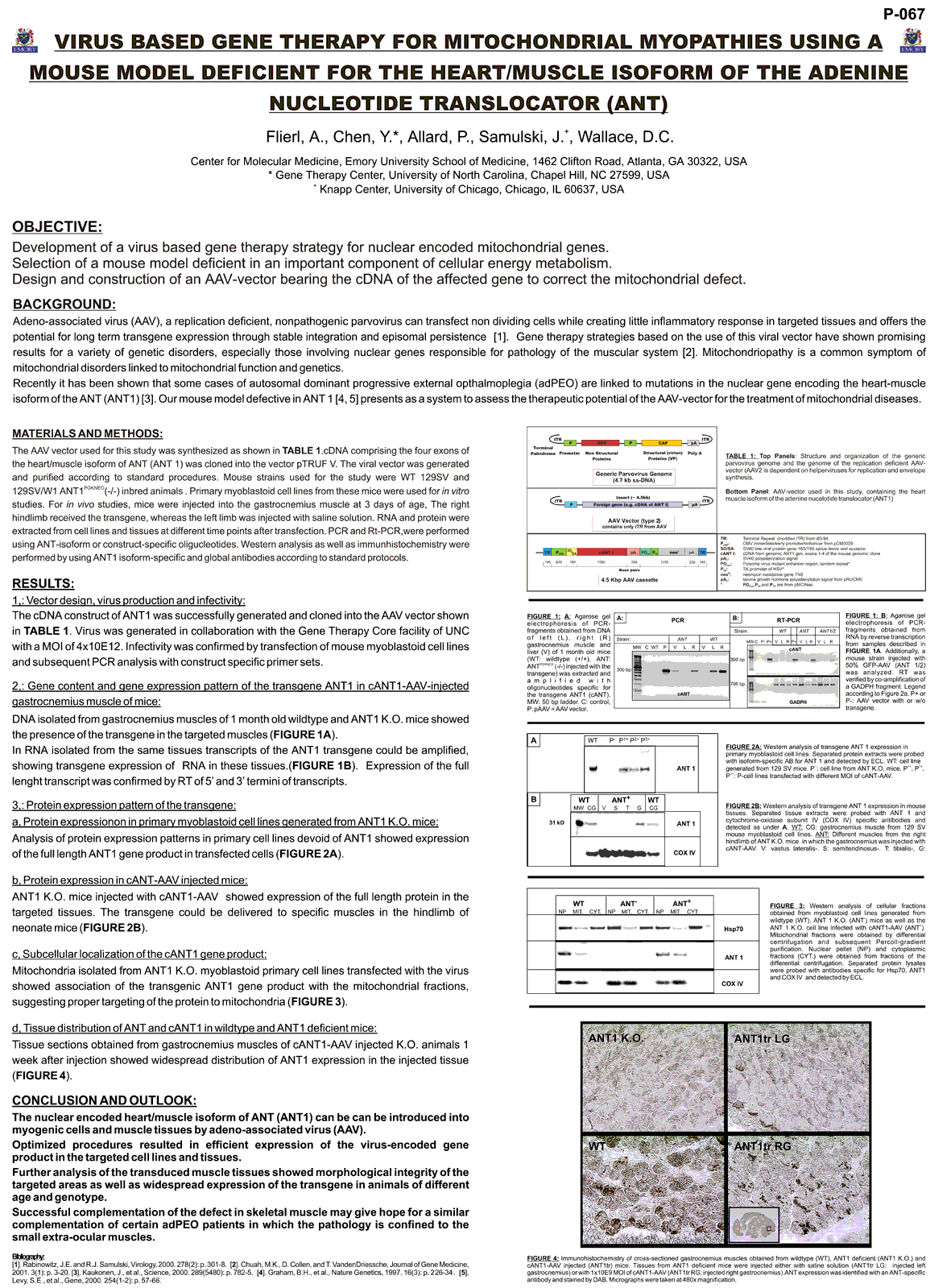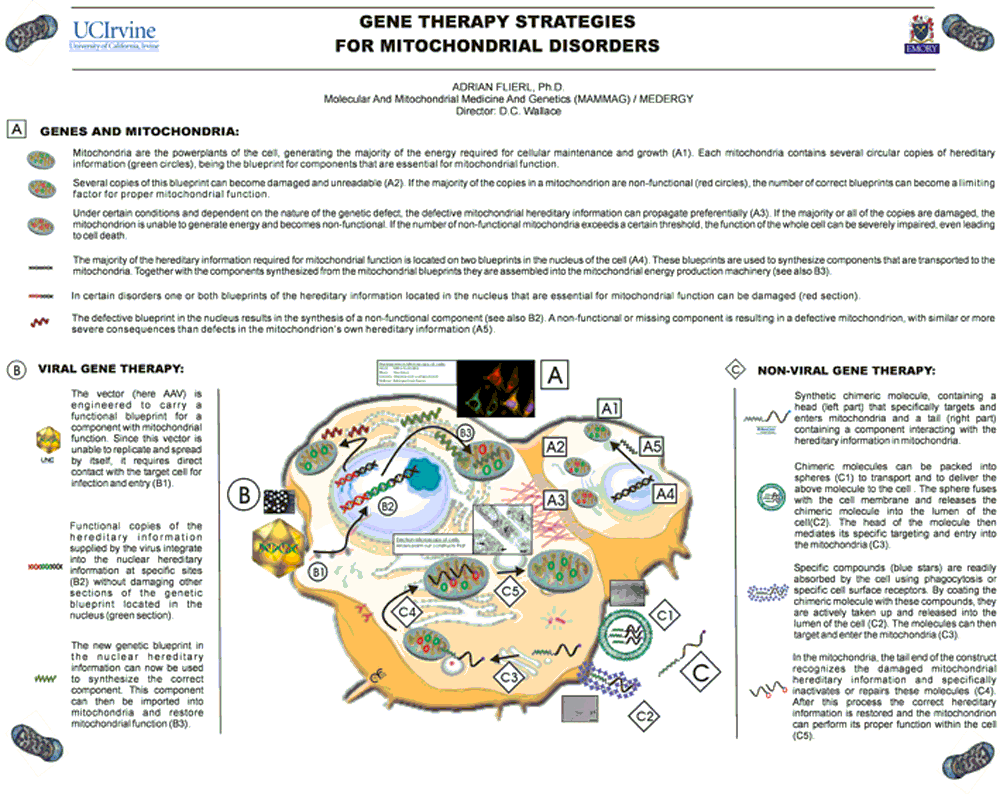You are here: Foswiki>MITOWIKI Web>InternalHome>ResearcherAdrianFlierl>AdrianFlierlResearchInterests (12 Feb 2016, MartyBrandon)
Gene Therapy for Mitochondria:
Strategies
Poster at Hewitt Dedication in 2003AAV mediated Gene Therapy
 _________________________________________________________________________________________________________________________________
_________________________________________________________________________________________________________________________________
Mitochondrial Function in Myogenic Stem Cell Growth and Differentiation
The role of mitochondrial function in energy production, cellular growth, senescence and apoptosis is well established. Mitochondria have also gained increased attention for their involvement in stem cell biology and their propagation and differentiation. Several genetic defects that directly affect mitochondrial function have been described as being causative for developmental defects and embryonic lethality. Additionally, environmental factors that either impact or support mitochondrial function, such as RedOx modulators and free radicals (ROS) have been implicated in having significant impact not only on proliferation and viability, but also on the differentiation potential of stem cells. To address the question on how impaired mitochondrial function and external challenges impact the growth and differentiation potential of pluripotent stem cells, we derived myogenic stem cell lines that are defective in a specific mitochondrial transporter, the Adenine Nucleotide Translocator (ANT). The different isoforms of this transporter, located in the inner mitochondrial membrane, are crucial for exporting mitochondrial generated ATP to the cytosol and have been described as playing an important role in mitochondrial homeostasis, RedOx balance, and most important mitochondrial mediated apoptosis pathways. In humans, point mutations in one of the isoforms of this transporter are associated with disorders that also point to decreased regenerative capacity in affected tissues. Additionally, different isoform-specific knock-out mouse models of this transporter present with phenotypes ranging from mild mitochondrial disease phenotypes to being embryonic lethal. Myogenic stem cell lines with a defined mitochondrial genetic defect involved in energy metabolism are a valuable tool to study the role of mitochondria in stem cell biology, as they allow for assessment of proliferation and differentiation potential of tissue specific stem cell phenotypes under the impact of known modulators of mitochondrial function, such as mitochondrial inhibitors and ROS generators. Although mitochondrial oxidative phosphorylation is not essential for propagation and proliferation of myogenic stem cells, impairment of mitochondrial function by external factors or by mitochondrial genetic defects has a decisive impact on their proliferative capacity and on their differentiation potential.Topic revision: r1 - 12 Feb 2016, MartyBrandon
 Copyright © by the contributing authors. All material on this collaboration platform is the property of the contributing authors.
Copyright © by the contributing authors. All material on this collaboration platform is the property of the contributing authors. Ideas, requests, problems regarding Foswiki? Send feedback

